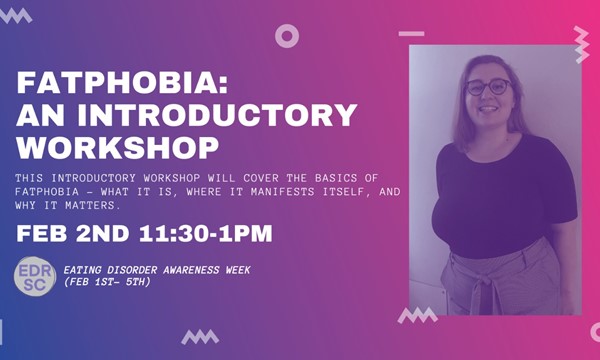This introductory workshop will cover the basics of fatphobia - what it is, where it manifests itself, and why it matters - and its content is informed by lived experience and empirical evidence. It is open to all who are interested!
☆ MEET OUR SPEAKER ☆
Paloma Hepler (she/her/elle) is a recent McGill graduate and a co-founder of the SSMU Eating Disorder Resource and Support Centre.
LAND ACKNOWLEDGEMENT:
While this event is happening virtually, the EDRSC is based in Tiohtiá:ke, colonially known as Montreal. Therefore, we must acknowledge that this entire island is located on unceded and unsurrendered Indigenous land. The Kanien’kehá:ka Nation are recognized as the custodians of the land and water on which we gather today. Tiohtiá:ke has historically been an important meeting place for different Indigenous nations. We must recognize the unique and disproportionate hardships Indigenous people have faced and continue to face as a result of colonialism. It is important to not only acknowledge these hardships but to also actively resist colonialism and neo-colonialism in the diversity of forms they take, as we stand in solidarity with Indigenous peoples. We encourage settlers to acknowledge their privilege and question how they are working to be anti-oppressive every day.
